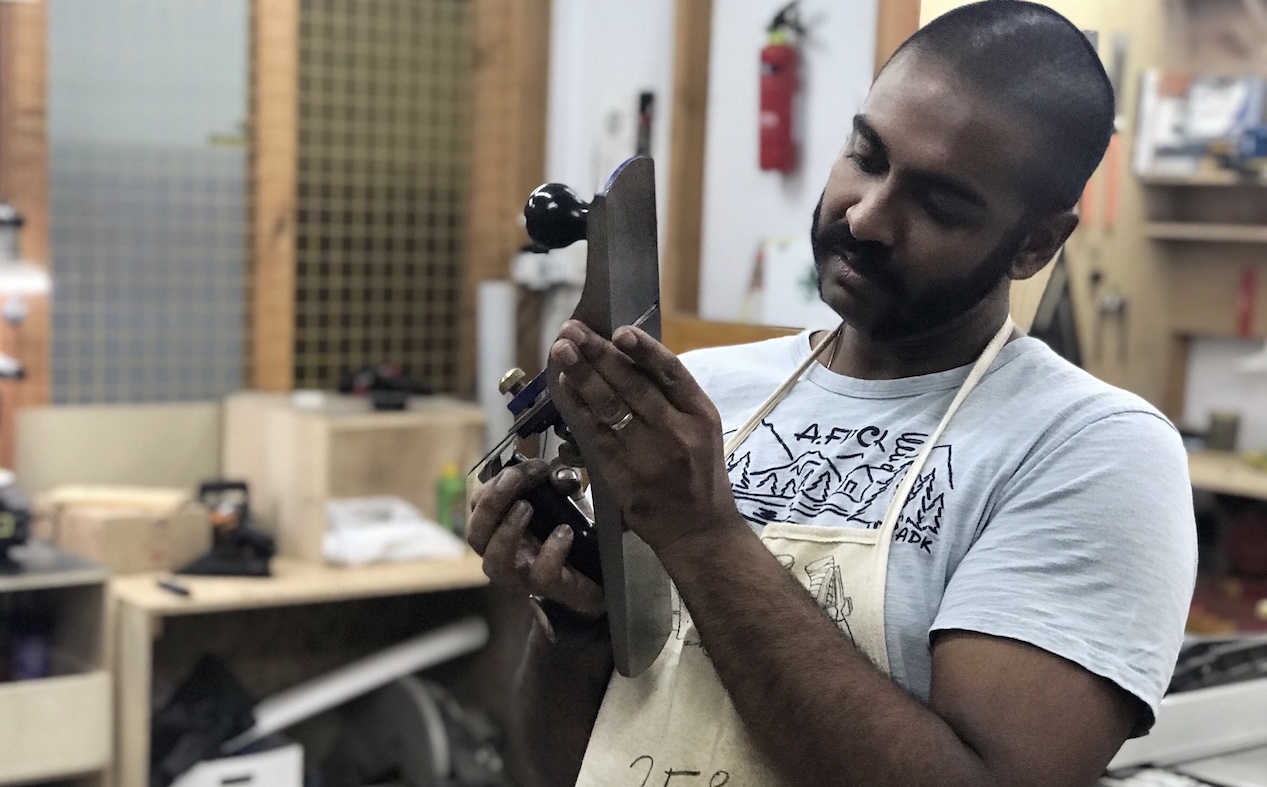Photography by author unless stated.
7 AM on a stormy Wednesday morning sees me on the outskirts of Geylang, in search of twenty-six-year-old Joshua Ram whose story I wanted to hear.
After navigating various back-alleys while sustaining second-degree burns courtesy of my plastic bag of coffee, I arrive at Ram’s carpentry workshop and see the man inspecting a large slab of oak with an attentiveness I can only replicate while watching women’s beach volleyball.
Upon hearing the squelching of my sneakers, he looks up and greets me enthusiastically.
We chat for a bit before he grabs a brush and a tin of lacquer from his shelf and begins to meticulously coat the oak. In between brushstrokes, he tells me about his life.
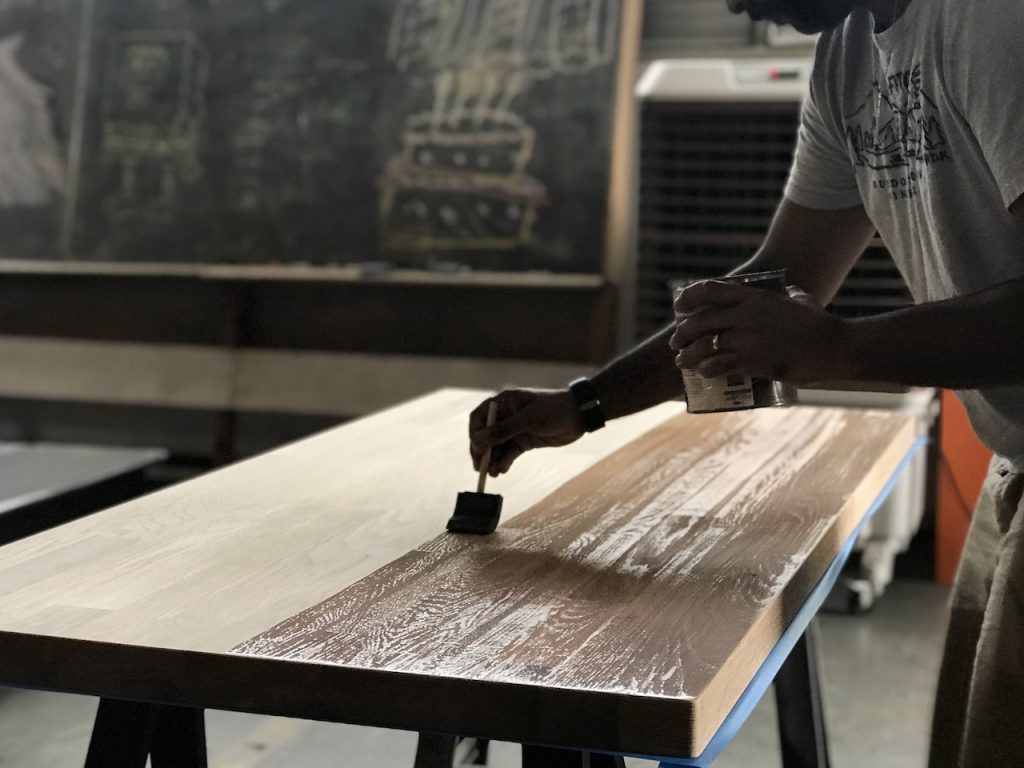
The eldest son of a renovation contractor father and an editorial assistant mother, Ram shares that he grew up in a middle class Singaporean household.
“We weren’t exactly poor-poor, but money was tight. My mum stopped working for quite a while to look after us and my dad was pretty irresponsible with money. He would spend on his entertainment rather than the family. We didn’t get a lot.”
His mother’s required frugality meant that as a young boy, Ram was often given the task of fixing broken appliances around the house since repair costs were deemed too high. In the process, he discovered the joy of working with his hands.
“I was a really scared kid at first since I hardly knew anything about what I was supposed to fix but I’d go on the internet and look for information. YouTube hadn’t been invented yet so when I happened to find repair instructions, I would just read and follow. Gradually, it got easier and when stuff worked again, it felt really good! Shiok la!”
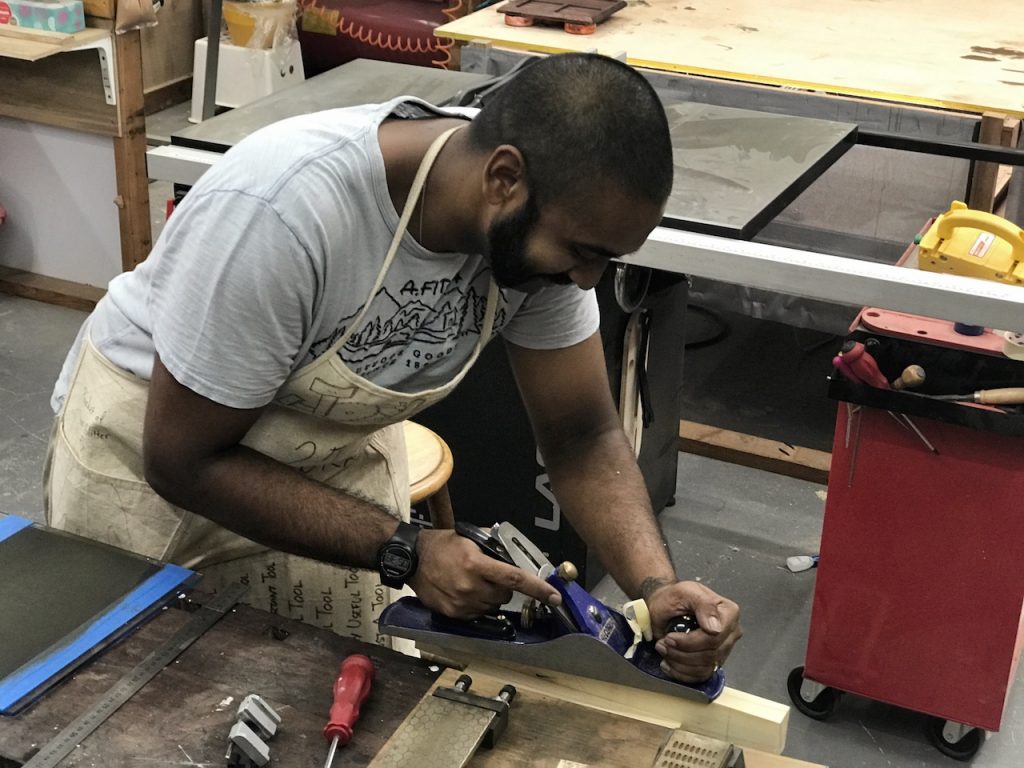
I ask him if those early forays into tinkering had in any way kindled a dream of becoming a professional carpenter. Shaking his head, he tells me that from age ten, he aimed to become a neurosurgeon after witnessing multiple strokes rob his maternal grandfather of his mobility and speech.
From then on, Ram worked hard towards his dream. When he was 15, his parents divorced, meaning that money became an even greater issue. So he started working during school holidays in secondary school and after class in junior college.
Not having fared well enough in his ‘A’ level examinations to pursue medicine or law in university, Ram chose the only remaining option that parental expectations offered him: engineering.
At the time, National Service equated to financial independence. He was well and truly on his own, and had to start saving whatever extra cash he had.
“I didn’t take any time off after I ORD-ed. The very next day, I was on a ferry back to Pulau Tekong but this time as a Physical Fitness Instructor with Certis Cisco. I knew that I wouldn’t have the time to work when I started school so near the end of my service, I enrolled myself in a Fitness Instructor course,” he tells me.
By the time NTU’s freshmen orientation rolled around, Ram had saved enough for his first year of university and could generally tide himself over. Once again, he’d had no time off: his first day at university was also his last day at Cisco.
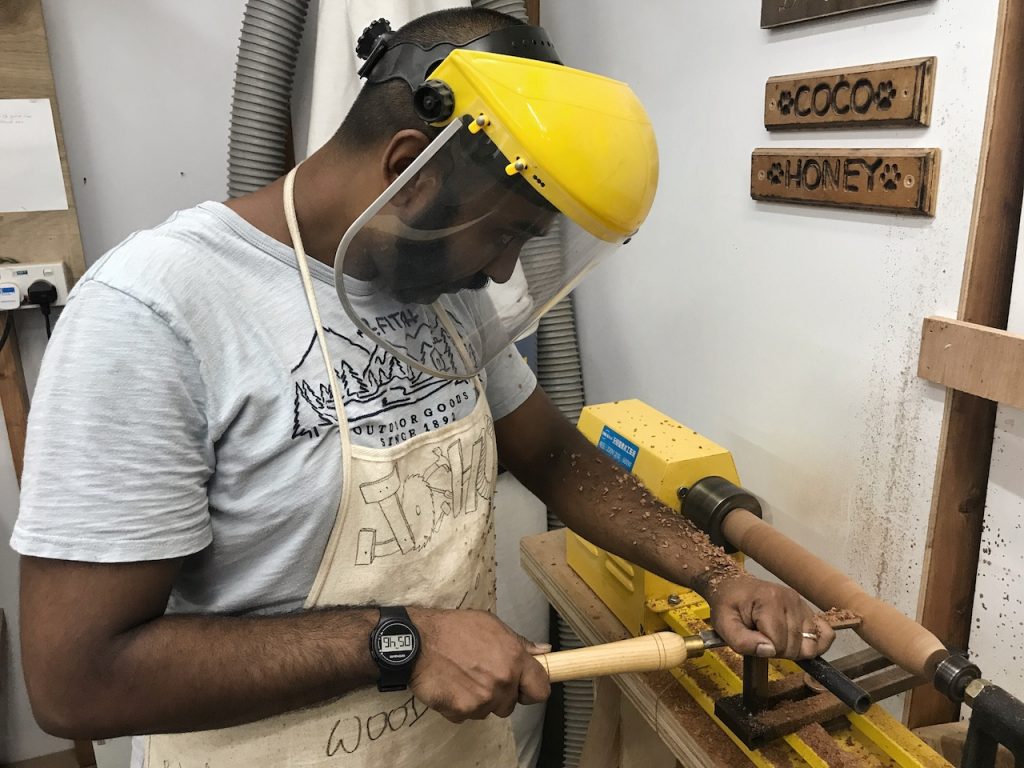
Standing back to admire the varnished slab of wood (which by now I’d learnt was a dining table top), I begin to wonder if he had ever taken time off.
Ram takes a sip of his coffee before resuming the narration of his life.
“Within the first few weeks of university, I quickly realised that I wasn’t cut out for engineering. I walked into 90% of my classes and had no idea what on earth was going on. My plan from that point on was to transfer out to another faculty like Business or Communications and study something I knew I had more of a gift at.”
Optimistic about his chances of switching faculties, he stopped paying attention in his classes.
“On hindsight, that was the stupidest thing I could have possibly done because unfortunately, no one wanted to take me.”
Ram was stuck and floated from one semester to the next trying to pull his GPA up high enough for a transfer. However, being kept busy with hall-related activities meant his social life boomed. It was then that he met an acquaintance who offered him a job in nightclub management.
With his savings all but gone, Ram joined the nightlife scene to continue paying his way through school.
“I started out as his personal assistant and eventually ended up becoming the general manager. It was pretty dope. Suddenly, I was the big dog that bouncers listened to and girls wanted to chat with. It felt good and I had money but at the end of the day, it was an empty lifestyle. I was drunk a lot,” he says, a sheepish smile creeping onto his face.
Unsurprisingly, the cycle of guzzling alcohol and sleeping off its effects took a heavy toll on his grades. A couple of months later, he quit and went back to living on his limited savings. By then he had also gotten to know his future wife after being introduced by a mutual friend.
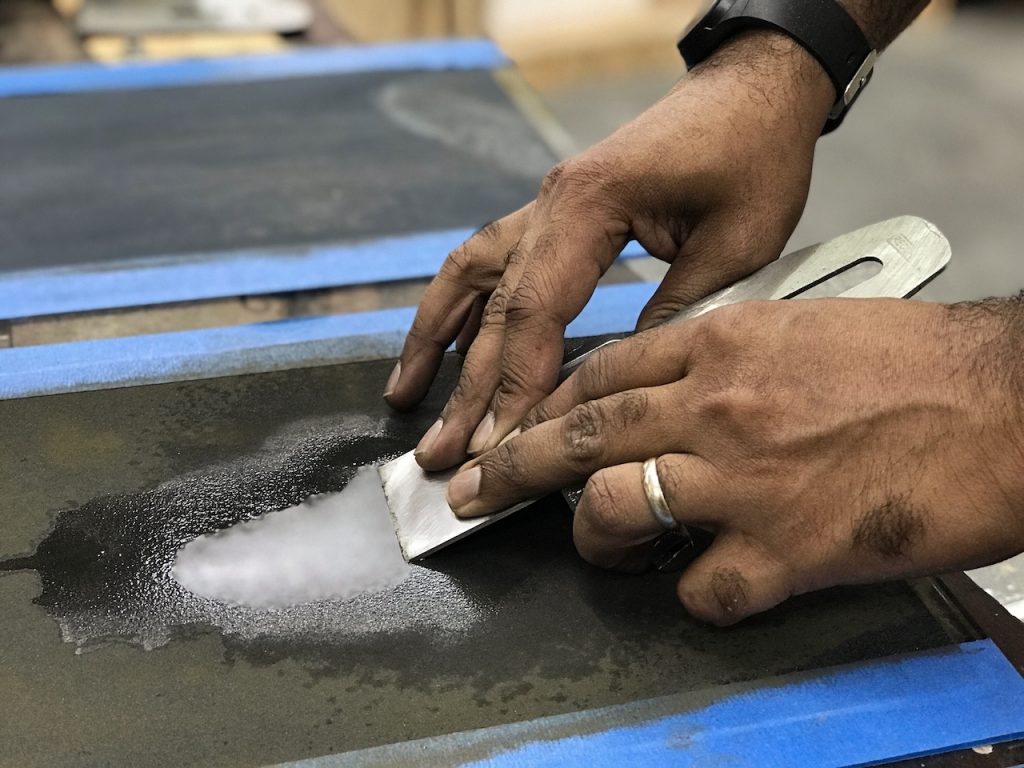
Taking a break from sharpening his tools, Ram subconsciously runs his thumb over his wedding band and chuckles.
“From the get-go, her parents hated me. They were both Indonesian-Chinese and extremely conservative, whereas I was this bearded, tattooed, poor boy who was an average student working in nightlife.”
Within a week of finding out that the couple were dating, her parents sat her down and issued an ultimatum: they were to get married or never speak to each other ever again.
“It was a no-brainer for me. I knew she was the one but I did wonder if she would call it off. I mean, we had only dated for 3 months tops, so we took another month to think it through and be sure. In the end, she agreed.”
Needless to say, her parents flipped out after hearing the couple’s decision, threatening to stop supporting her financially. Unbeknownst to Ram, she came from an affluent family.
But she didn’t care. She was prepared to give it all up and had savings. She was also working at Esprit while waiting for news about her teaching position from the Ministry of Education.
When Ram subsequently went to her home for the first time to meet her parents and ask for her hand in marriage, the penny dropped.
“I remember the lift doors opening directly into the house and just being shocked at how their living room was almost twice the size of my entire flat. I’m pretty sure her parents thought I was just after their money, but only then did I realise they were rich.”
At that point, the extent of his girlfriend’s sacrifice finally dawned on him. She was going from riches to rags; from Rolex to Casio (and a fake one at that). Just as before, the couple took time to think long and hard about their decision. Two weeks later, she said yes once again.
Knowing that he’d probably never meet a woman like that ever again, Ram got down on one knee and popped the question. For the third time, she said yes.
They signed up for a solemnisation date in secret, and Ram returned to work for Cisco since it was his term break. At the same time, he applied for a leave of absence from school to sort his personal life out.
Coincidentally, she also began her contract teaching at a nearby secondary school. Both were drawing salaries, and they moved in together after finding a room for rent in Pasir Ris for $1000 a month.
“It wasn’t much, but it was home,” he says.
Seven months after they first started dating, they became man and wife in a simple and intimate ceremony. The guest list reads like your average tweet. Just twenty-two of their family members and closest friends. Total.
While the couple had savings, they didn’t see the point of unnecessary extravagance.
The following year was filled with ups and downs.
On the one hand, Ram’s relationship with his in-laws improved dramatically when they saw their daughter happy, and the marriage was working. Discovering that Ram had urged their daughter to visit them also went a long way in helping to overcome their earlier biases. Ram knew that his wife couldn’t stand being alone with her parents during that period and would always accompany her for emotional support despite the less-than-friendly welcome.
For all the progress made in the relationship, however, her parents were always less than impressed at their living situation and constantly pressed them to move.
“We had already been looking for places to buy, and we found a two-room flat that was affordable after all the different grants had been taken into consideration. It wasn’t great, but when you’re 23 and your wife is 22, you take what you can get!” he says, and his deep belly laugh makes another appearance.
But whatever they found was never good enough in her parents’ eyes. After countless arguments and tears, her father insisted they get a bigger place and helped them pay off the bulk of a larger HDB flat.
Ram shares with a sigh, “We didn’t exactly want or need any help, but objectively, it would’ve been more foolish to turn it down, so putting ego aside, we gave in. It was a very, very bitter pill to swallow and extremely emasculating.”
Perking up again, he tells me that back then, he had yet to quit smoking and his wife’s refusal to allow him to light up in the house meant a fair amount of his time was spent along the corridor.
“I’m the kind of smoker that absolutely hates standing while having a puff, so one day I had a brainwave. I was going to build a bench for my ass so I could properly enjoy my cigarette.”
In accordance with his plan, Ram then bought some plywood along with a cheap circular saw and instinctively started to build what he had envisioned.
“There were no plans involved at all. Everything was done based on feeling. Just glue and screw!”
As I burst into a loud guffaw, he continues. “After building my first bench, I was like, YO! This feels really good! That smoke I had while sitting on the bench I built was amazing.”
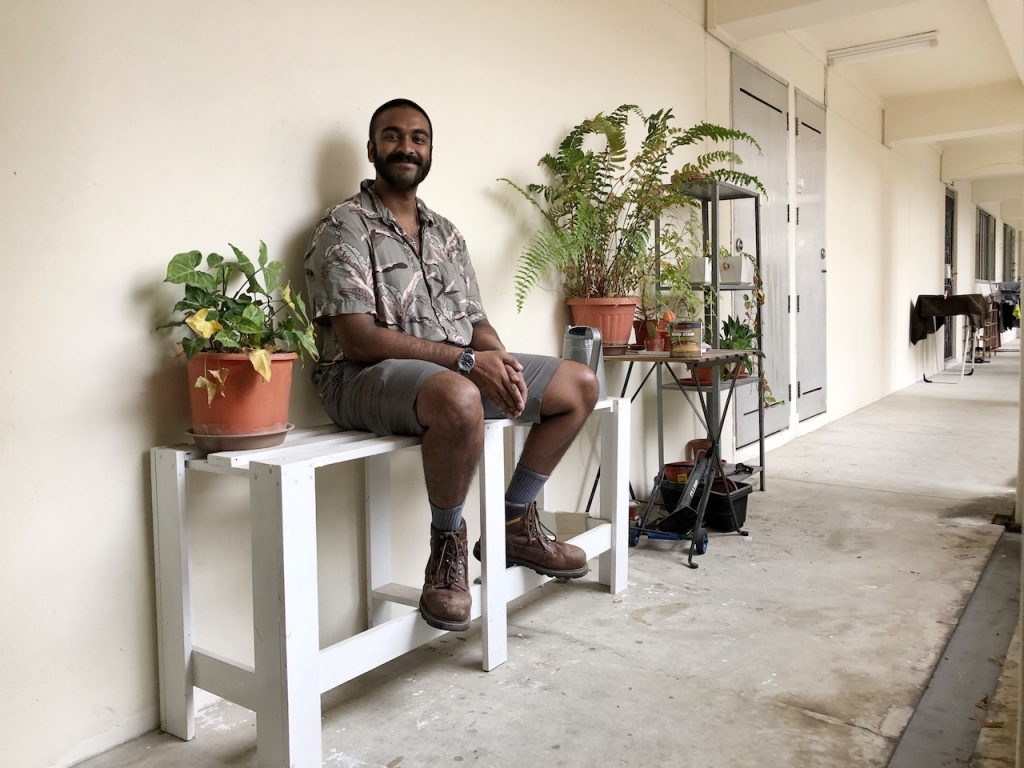
Just like that, he fell in love with the art of creation, and his new muse took the form of woodworking. He found his silver lining.
Later, needing a coffee table for his home, he put together a rudimentary one using the leftover plywood. Immediately upon completion of his second project, he realised that he was addicted to building and the accompanying feelings of accomplishment.
Equal parts supportive of her husband’s creative pursuits and fearful of him decapitating himself with a motorised saw that was prone to kickback, she bought him a bunch of proper tools that Christmas.
With his new gear, he went on a construction rampage, giving anything that came to mind a shot. Slowly, he learnt his craft by referring to YouTube videos and good ol’ trial and error. In the early days, he made a lot of mistakes. Sometimes, his creations wouldn’t look as nice as he had imagined, and others were—on occasion—structurally unsound.
Not one to readily admit defeat, he would salvage whatever he could and start all over again.
One such evening, he challenged himself with a more sophisticated project. Only there was one big problem: his progress had plateaued.
“There’s really only so much you can learn from watching videos on a computer screen. There was so much I didn’t know. I wanted to learn, and the best way I knew how to do it was to see for myself.”
Ram did his research and began making trips to Sungei Kadut, the Mecca for local woodworkers, after school.
In a bid to learn everything he could about the trade, he talked to anyone and everyone but always ran into the wall known as ‘trade secrets’, which pissed him off to no end.
“Everyone there was so secretive and generally selfish. I think they realised I was asking very technical questions that most people wouldn’t bother about. Like how they sanded the wood or what machine they used. They wanted me to just buy something and leave.”
Without warning, Ram’s harsh tone changes as he starts to talk about a man named Michael, whom he credits as his unofficial mentor.
Like everyone else in the area, Michael initially tried to sell Ram something or another.
“I kept telling him that I knew he could do a better job than me, but what was important was that I learnt how to do it myself. He found my tenacity extremely amusing since I was a university student and Singaporean.”
Michael and his workers eventually got used to Ram’s constant presence. As a gesture of appreciation, Ram would buy them coffee or cold drinks before spending hours watching and badgering them with his questions.
Interrupting Ram for a moment, I ask if a language barrier existed since he’s an Indian man trying to communicate with Chinese workers. He nods his head and anticipates my next question.
“After I asked the same thing ten times in ten different ways, they managed to distil the essence of my questions and told me what I wanted to know.”
At long last, Ram was finally making progress again and soon plucked up enough courage to attempt his project alone at home. Whenever he got lost, his unofficial mentor was only a text away.
“He wouldn’t give me explicit instructions, but he’d point me in the right direction. I figured it out on my own.”
Over time, Ram’s improvements in his craft showed.
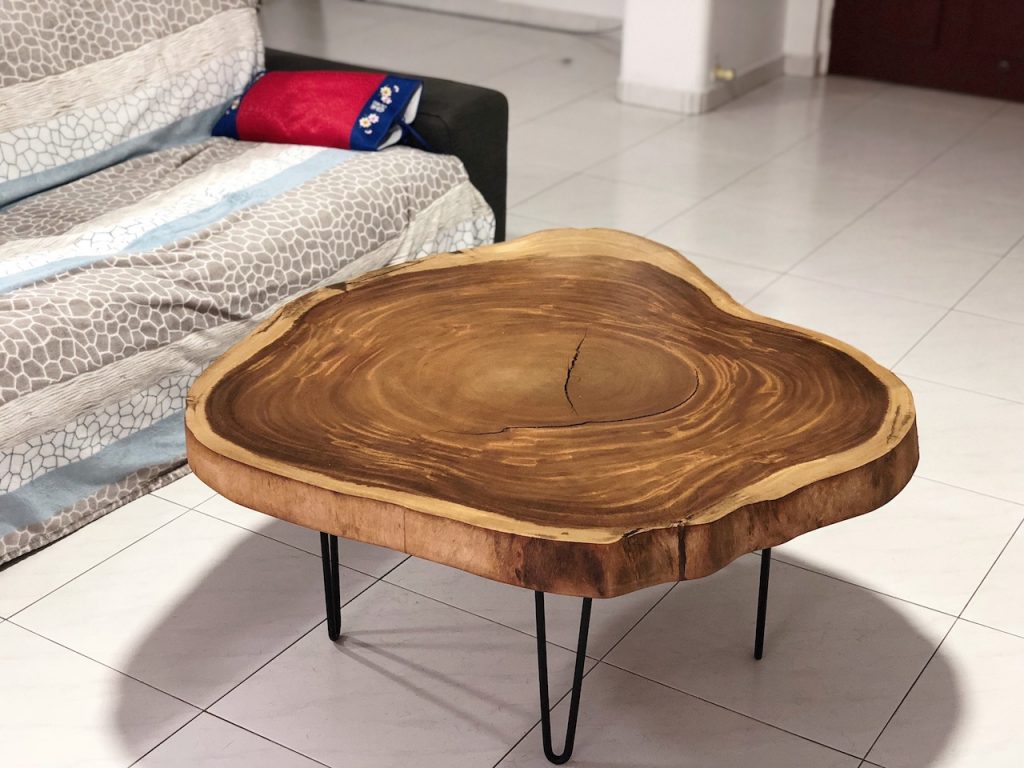
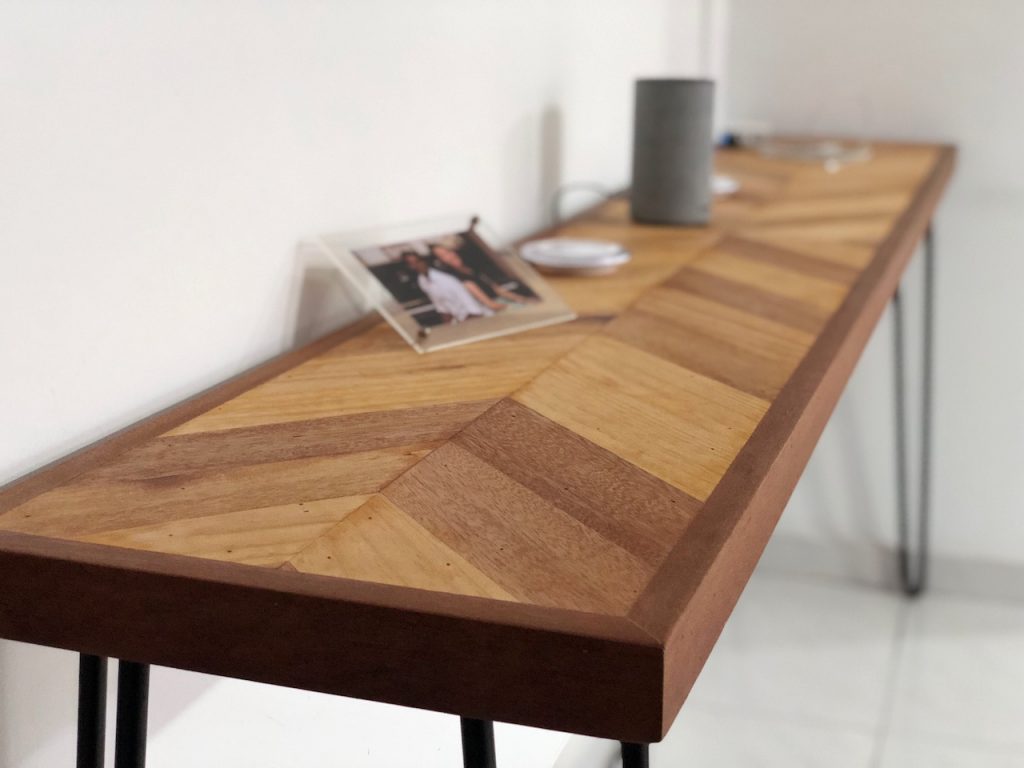
A noticeable hint of pride in his voice, he shares that projects started coming his way.
“Friends and family started to notice my work and they were willing to pay for custom pieces. Word-of-mouth also helped to generate interest. Back then, woodworking was still a hobby and not a business, but I made enough money to pay my bills. Whatever I had left went back into the craft.”
Through his cousin, Ram managed to secure a mammoth project as a subcontractor for HomeTeamNS, refurbishing their chalet bungalows.
But somewhere along the line, Ram realised that the project had become too big for his living room cum workshop. Desperately in need of more space, he moved his operations into his current rented workspace at Sims Close.
With the HomeTeamNS gig paying enough to cover a further three months’ worth of rent, Ram took a chance and turned his hobby into a business.
Thankfully, that risk paid off, and more commissioned projects slowly started to come in, making Ram enough money to cover his overheads, keep the business going, and turn a profit.
The rest, as they say, is history.
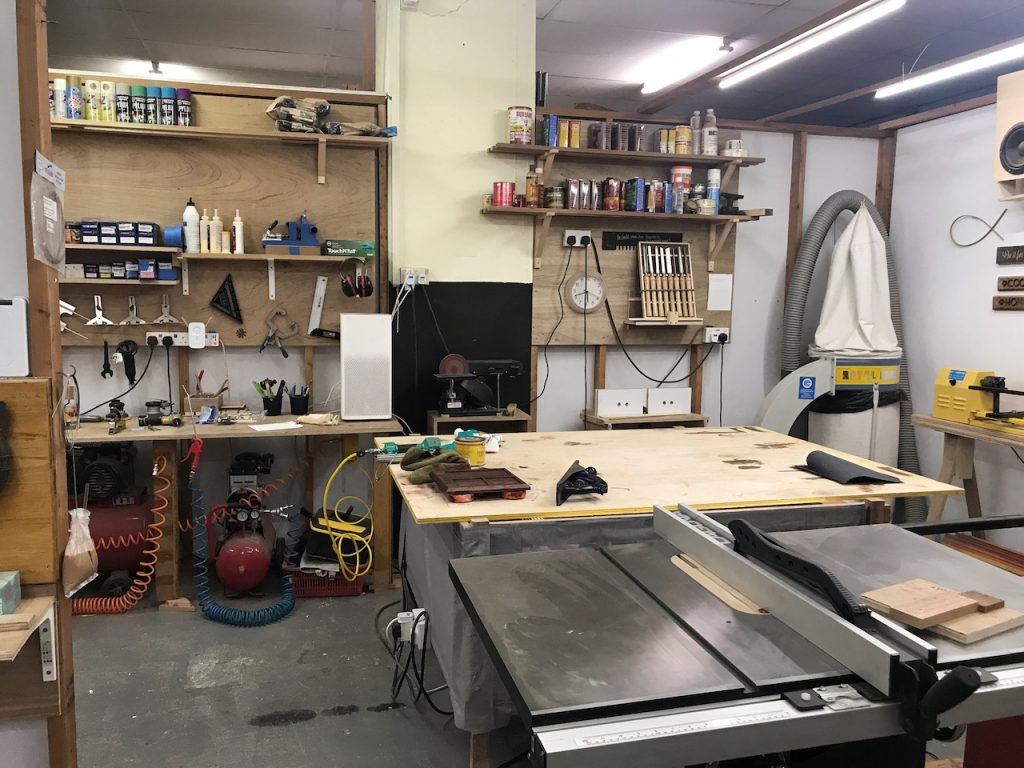
Putting my notebook away, I sit and watch Ram go about his day for a moment longer. The next thing I know, the words tumble out of my mouth with a little too much ardour than I had hoped.
“Can I try?” I ask.
For all my 27 years of age, it turns out I’m still an excitable kid eager to play with new and dangerous toys.
Ram is all too happy to oblige. His love for the craft is evident. His passion for sharing his knowledge is blinding.
Patiently, he teaches me about all the tools in his workshop and even lets me try them out on spare pieces of wood. At the end of my woodworking crash course, I am a sweat-soaked mess covered in a fine layer of sawdust.
But I understand.
There’s no denying that Ram is a man who does what he loves and loves what he does. But to say that his story is about chasing one’s passion would only be half true. It’s also equally about his stellar work ethic—the fact that he never stopped to ask if things would work out and simply tried.
The two things combined make Ram one of the happiest people I’ve ever had the pleasure of meeting.
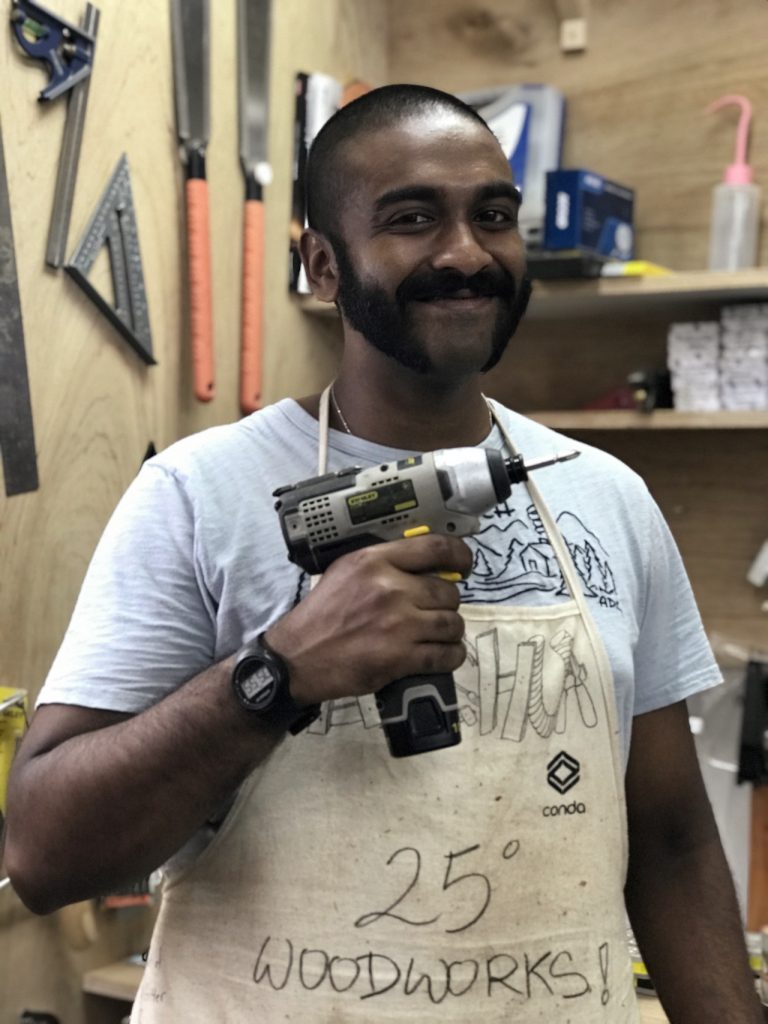
Do you also work with your hands or large pieces of wood? Tell us all about it at community@ricemedia.co.

